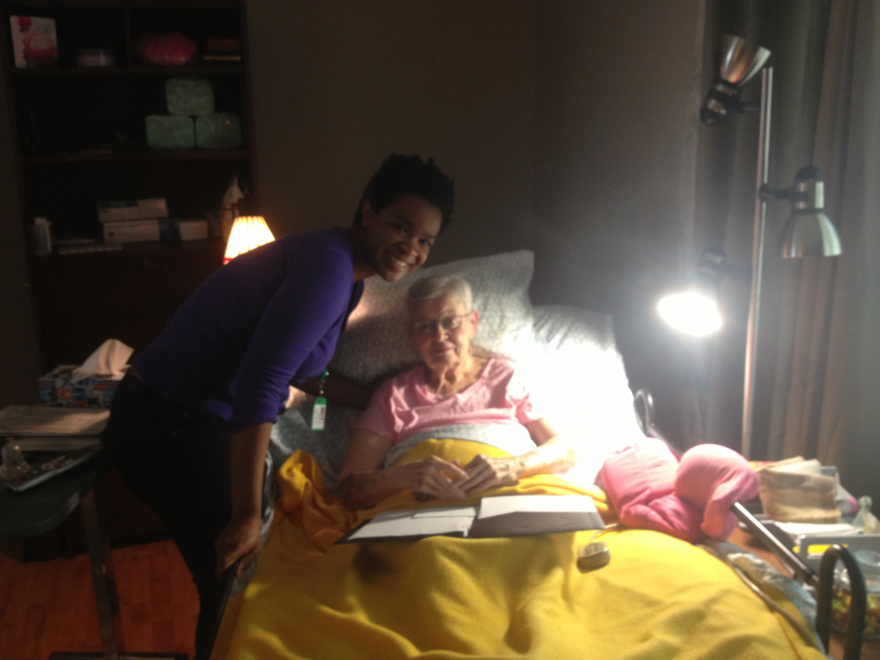Needles, gauze and pills are tools most people would associate with healthcare professionals. But, in Tallahassee, some in the medical field are trading in their sutures for the steel strings of a guitar.
Like most people who hear about music therapy, Jean Wilkinson and her family were skeptical of its usefulness. But, when a therapist from Big Bend Hospice began visiting Jean’s husband more than two years ago, the family’s thoughts on it changed.
“Well I wasn’t familiar with it at the beginning but I can see it can help brighten up your day,” Wilkinson said.
Candace McKibbon, director of big bend’s support services, said the hospice group was just as skeptical. That is, until 2001, when they were approached by a Florida State university alum who introduced them to the idea.
“We had someone who was training both as a social worker and a music therapist to work with us and introduce the concept to our CEO,” McKibbon remembered.
The music therapy department at Big Bend is one of the only programs at the facility not funded by Medicare or other insurance plans. So officials seek out donations and grants to keep it running. Susan Droessler, the department’s manager, said the progress the therapy makes in its patients means it’s a worthwhile investment.
“There have been patients that maybe haven’t been able to speak in quite some time, where we’ll do familiar music from when they were young and suddenly they can say a few words or sing every word to a song,” Droessler recalled.
Not all therapy sessions have such dramatic outcomes, most are quiet affairs. But, Droessler said that’s the point, to comfort and calm a person with a life-limiting illness and that means playing music patients identify with.
“If they like Jon Bon Jovi, or old time gospel hymns, or the old jazz music or country western, we’re going to go out and learn it, if we don’t already know it,” Droessler explained.
The music therapy program has about ten staff members, all of whom are specially-trained counselors with musical backgrounds. To get a job, therapists must have knowledge of conditions, ranging from Alzheimer’s disease to cancer and must play an instrument. The musician-therapists play guitar, flute and even harp. Different forms of dementia affect different areas of the brain and Droessler said live music helps connect those areas and relieve a patient’s symptoms.

“If you look at an MRI when someone’s listening to music, the MRI will light up all over the brain. It’s not going to be in one area and so if somebody’s having trouble with different parts of their brain or different areas of functioning, that means music can touch all of those,” Droessler pointed out.
Music therapy became a profession around the time of World War II as a way to help injured veterans. Patients suffering from Parkinson’s disease, like Jean Wilkinson, can control their tremors by following a musical rhythm. But, Carol Hack, Wilkinson’s daughter, would recommend the therapy just for the comfort it can bring to a loved one.
“It helps me know that there’s something that’s entertaining her, that’s she’s being involved with and you know that she enjoys doing and so that’s always good to know,” Hack said.


